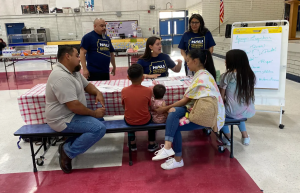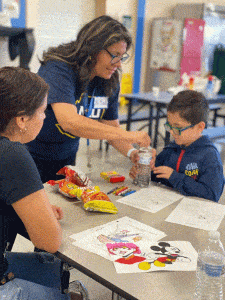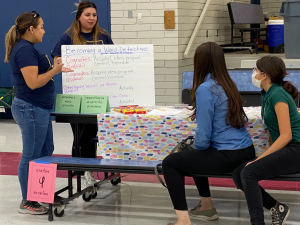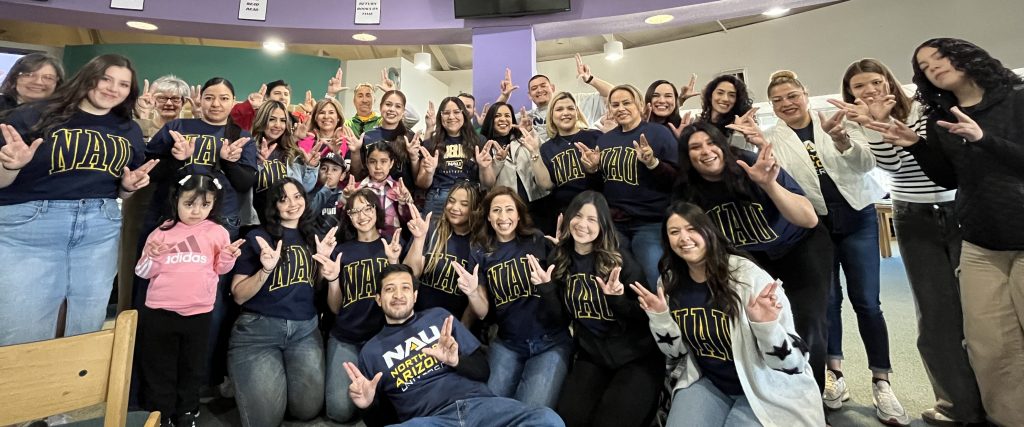For four years, students in NAU Yuma’s Bilingual/ESL Special-Education Training program (BEST) have planned and hosted Parent Institutes for Title I schools in their community. These institutes aim to affirm common home practices that support children’s academic language development, regardless of whether English is their primary home language.
Alma Montemayor-Sándigo, associate teaching professor in the Bilingual/ESL Education Department, said the goal of this program is to strengthen the connection between schools and students’ homes by establishing a closer relationship with parents.

The Parent Institutes are a collaborative effort involving local authors, schools and NAU Yuma BEST students. Local authors present on special topics such as the value of bilingualism, emotional regulation and family practices that support academic achievement. Following these presentations, BEST students facilitate interactive activities designed to foster meaningful conversations between parents and their children, as well as among siblings. The activities are grounded in research that shows children’s academic achievement, school engagement and motivation are connected to parent engagement at school.

“My favorite part of participating in the Parent Institutes was seeing families leave happy with new things to try at home and being able to educate and play with the kids,” said Gaely Gomez, a junior majoring in special and elementary education. Because of this program, she believes she will be able to make a meaningful impact on her community and is excited about what the future will bring.
“I believe the Parent Institutes affirms the identity of our teachers as servers of multilingual students and their families, bringing new perspectives on how to serve the community in ways that honor diverse families,” Montemayor-Sándigo said. “The program also helps our students develop a sense of empowerment and advocacy as they strengthen their relationships with parents.”

The program has been possible through financial support from the BEST grant and has served about 500 families in five local schools.
“Although we may not yet see the full extent of what we are doing, I believe that by planting small seeds through activities with families, we will witness their growth over time,” Gomez said.
To explore resources and view pictures from the Parent Institutes, visit https://padlet.com/almasandigo/parent-institutes-building-academic-conversations-at-home-d92eq3phawmvmbmu



